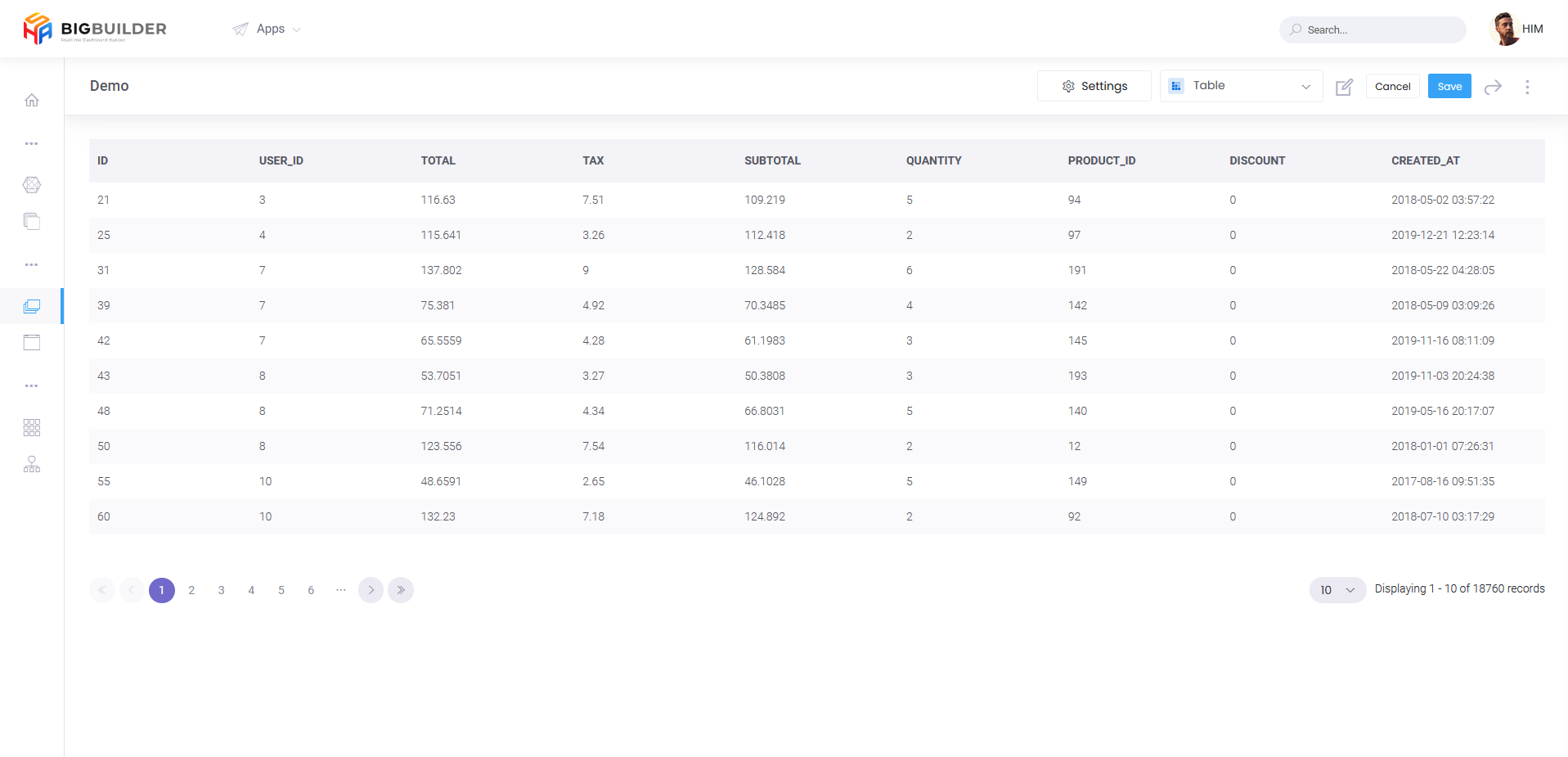Portlet
Portlet
A Portlet is the smallest part of a dashboard.
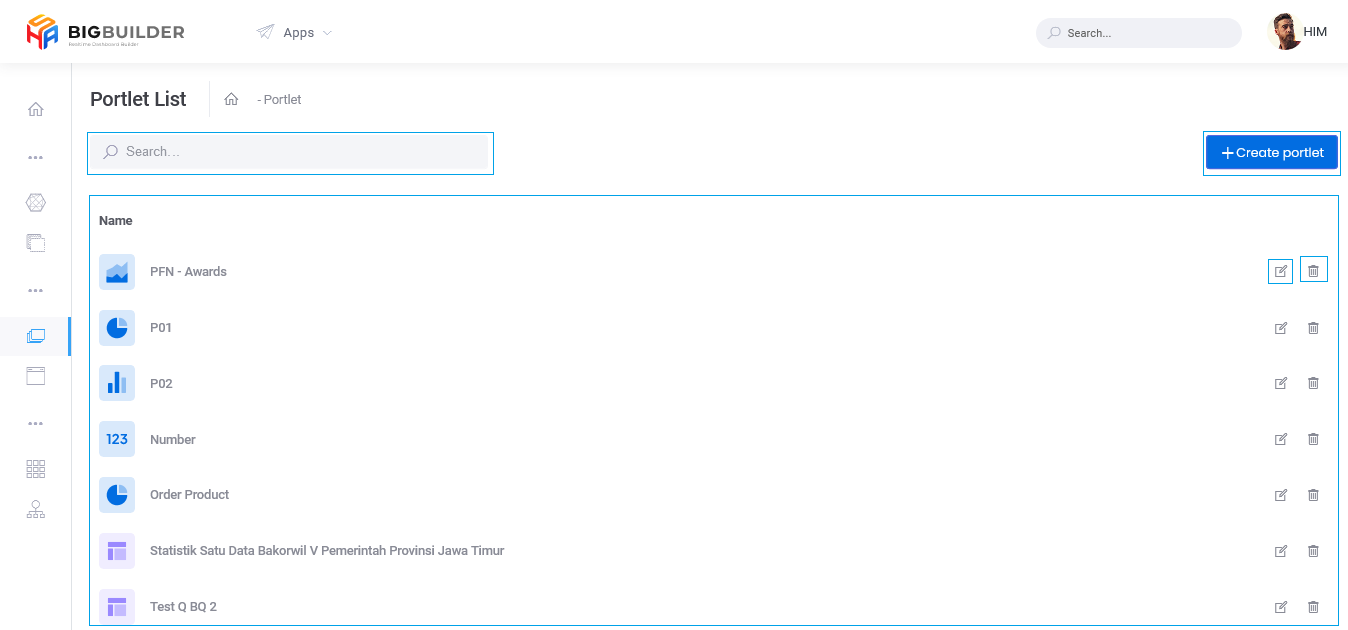
Contains a list of data that has been successfully visualized in the form of bar charts, pie charts, line charts, tables, etc. with various menu buttons to choose from, there are various symbols that describe each Portlet that has been created:
Portlet-type editor with Bar Chart
Portlet-type editor with Line Chart
Portlet-type editor with Area Chart
Portlet-type editor with Pie Chart
Portlet-type editor with Datatable
Portlet-type editor with Progress Bar
Portlet-type editor with Number
Portlet created from BigQuery
Portlet created from Custom View
Various types of portlets can be made so that users can be more flexible and easier when creating a portlet as desired. In making it easier for users when looking for portlets, they can use the "Search" feature. .
In each portlet there will be two action buttons which is useful for making edits to portlets that have been created, and will also delete portlets that are not used. Press
button to create a new portlet.
Creating New Portlet
Users will be provided with a modal popup containing a form when creating a portlet
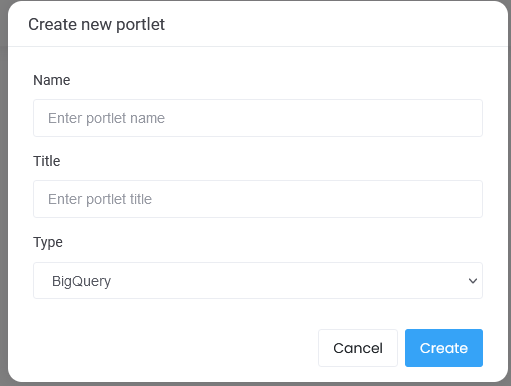
Write the name of the portlet according to the chart or portlet that will be created, then there is a Title as the name that will be displayed on a page, then there is a choice of Type, what type of portlet we will create:
- BigQuery : A feature used to make it easier to integrate charts/portlets from BigQuery with BigBuilder.
- Editor : Users will be given the freedom to create a portlet from choosing their own data source then visualizing what is used and also how the data will be displayed more easily.
- Custom View : This feature is used for advanced users so that they can customize more freely and the UI can be adjusted to the user's wishes
1. BigQuery
A form is provided which is used to register the configuration of the published BigQuery, with information such as Host, Secret Key, Type (Question/Dashboard), Question id.
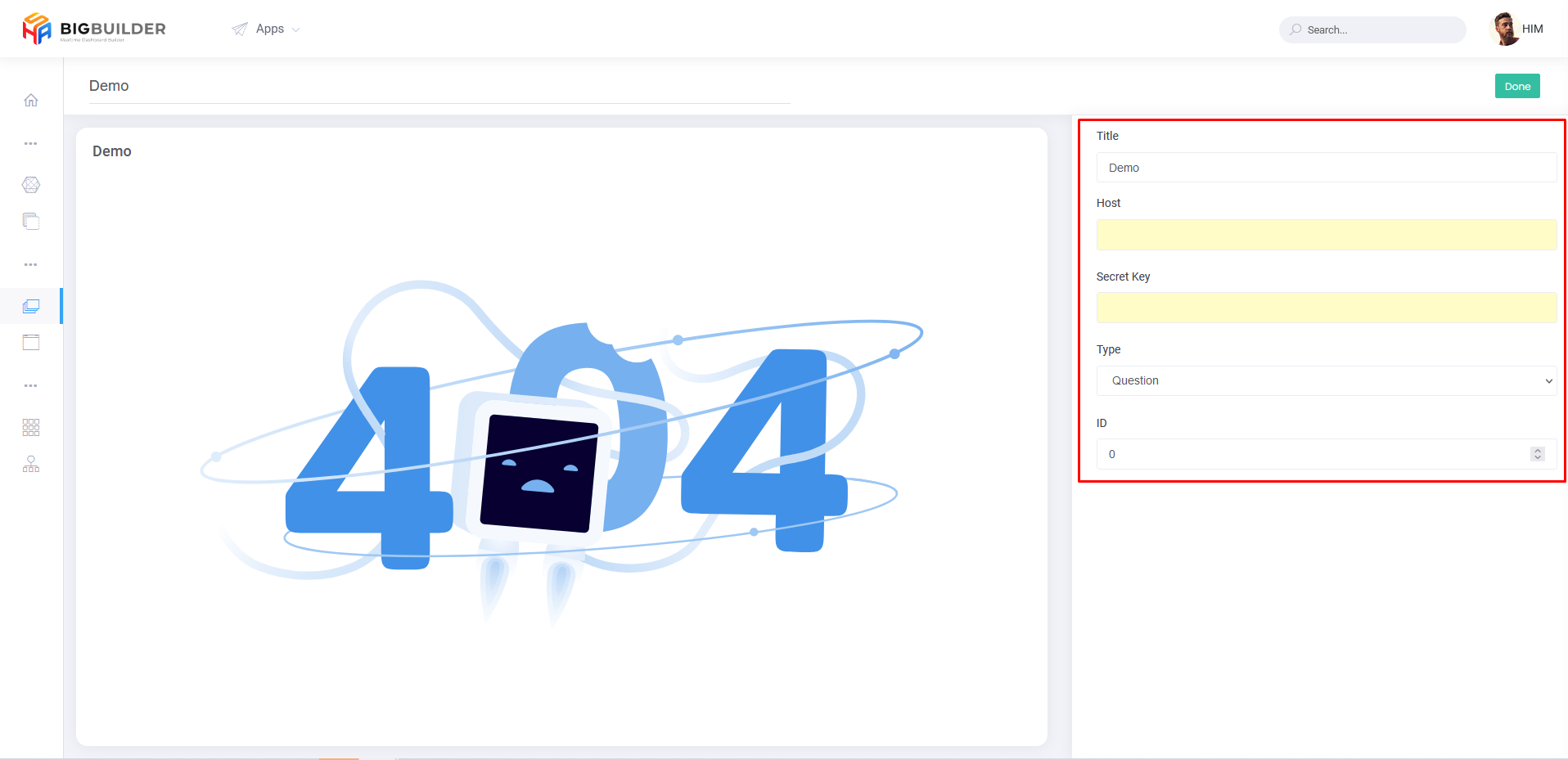
2. Editor
Various kinds of customization are provided in the creation of a portlet, which allows users to create a portlet according to their wishes and use pre-registered data sources.
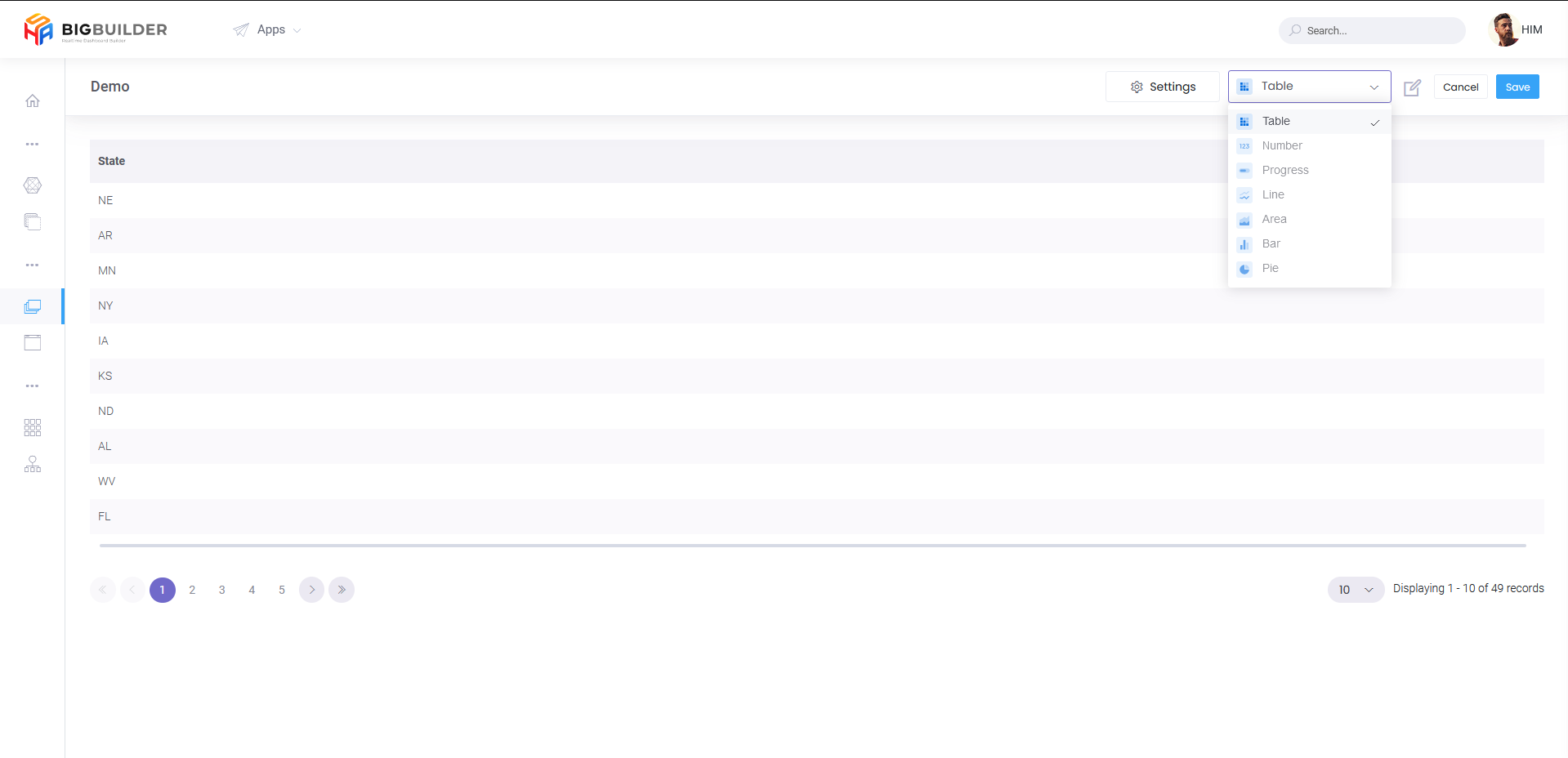
Press button to configure the portlet that will be created by the user, various forms are provided that can be completed.
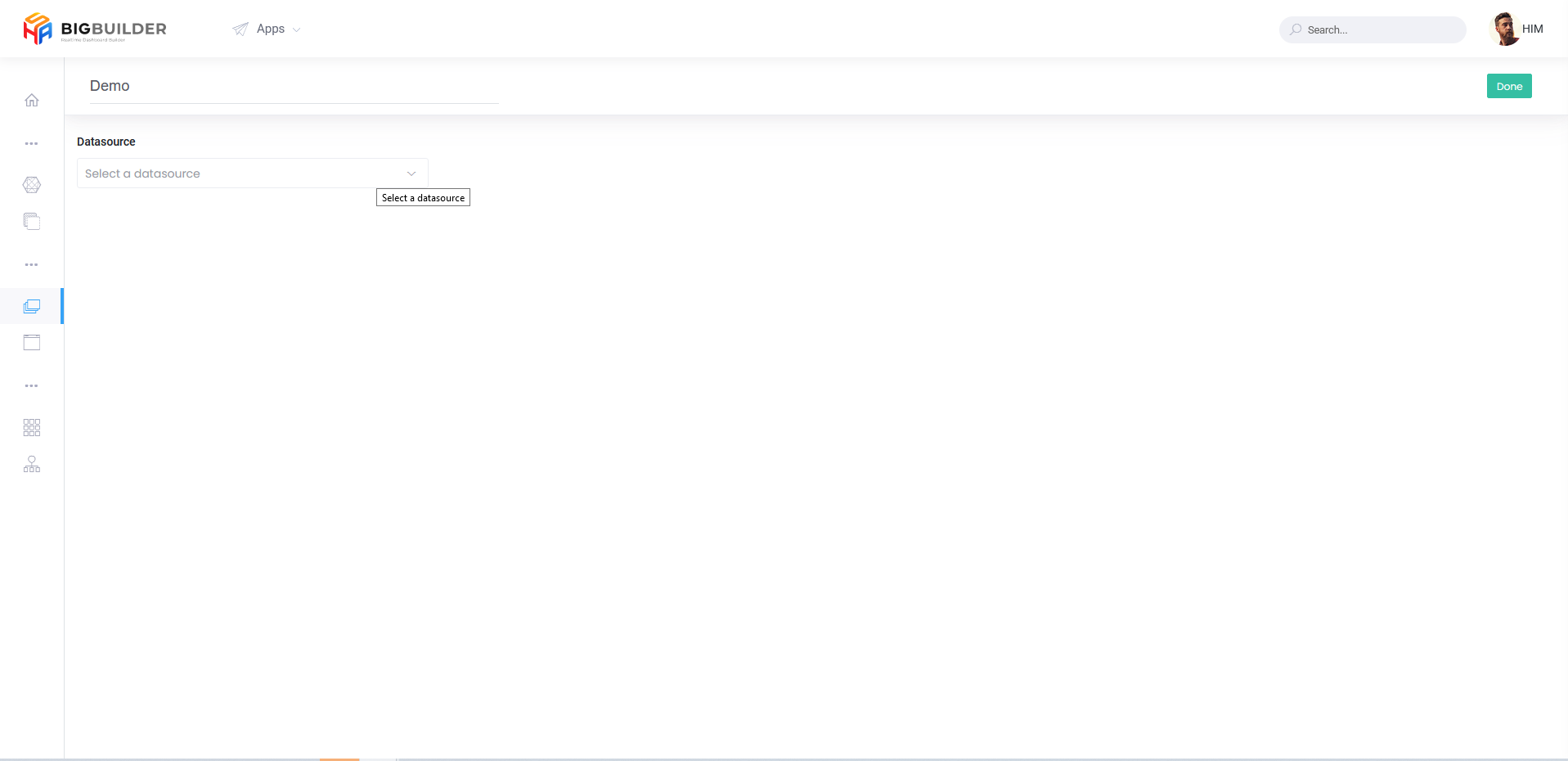
Select the data source that will be used in making the portlet, this data source list comes from the database that has been previously registered on the Connection menu and also the "Virtual table" created in Data Virtualization.
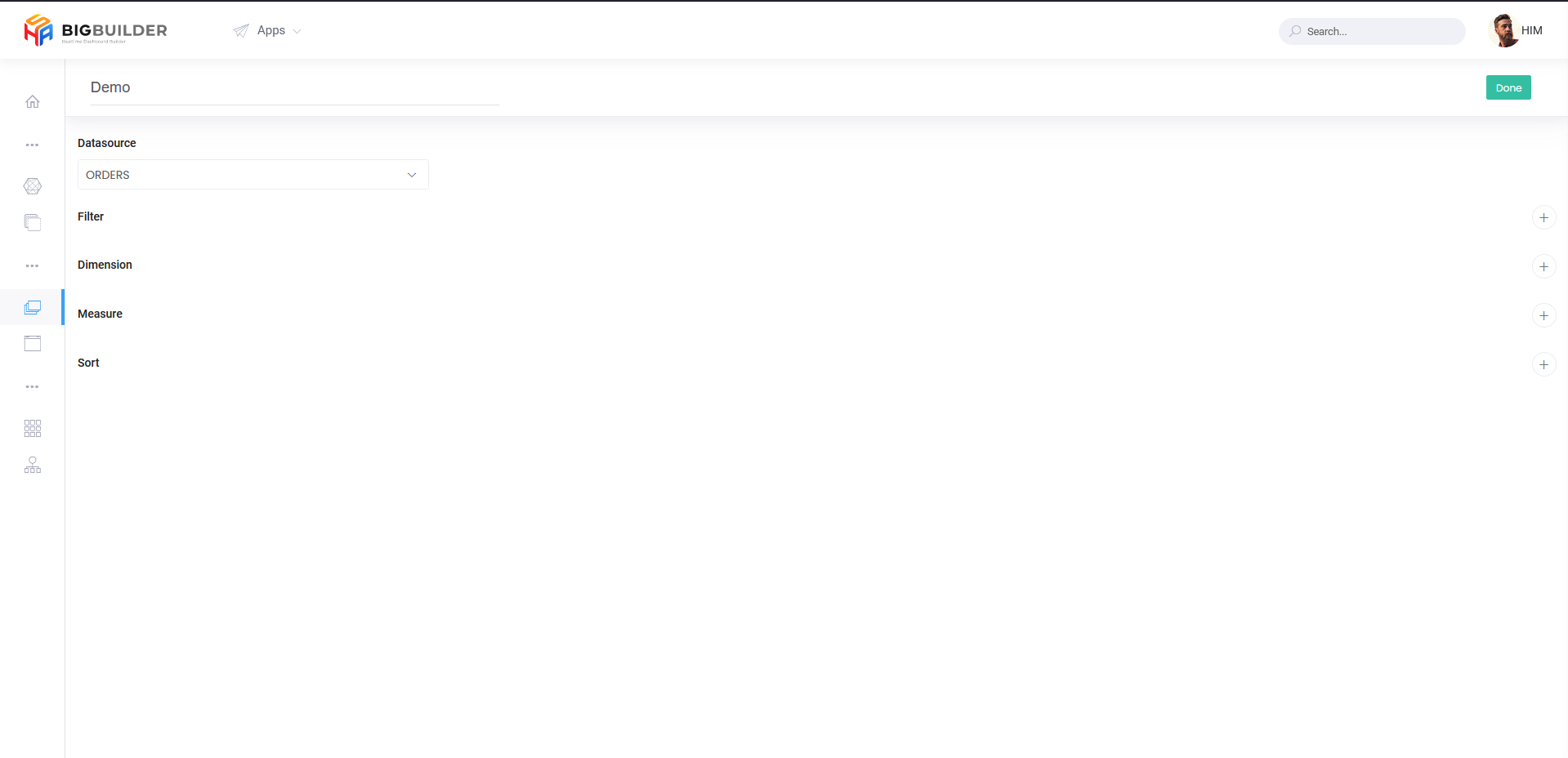
After selecting the data source used, various forms will appear such as:
- Filter: to filter data at portlet level
- Dimension: to select a column/field containing qualitative and categorical information as a dimension
- Measure: to select a column/field is a variable that can be calculated from one or more dimensions
- Sort: to perform data sorting at the portlet level.
There are also various kinds of charts that can be used in making the portlet:
- Table
- Number
- Progress
- Line
- Area
- Bar
- Pie
Click to make additional changes in the form of additional visualizations or colors of the portlet
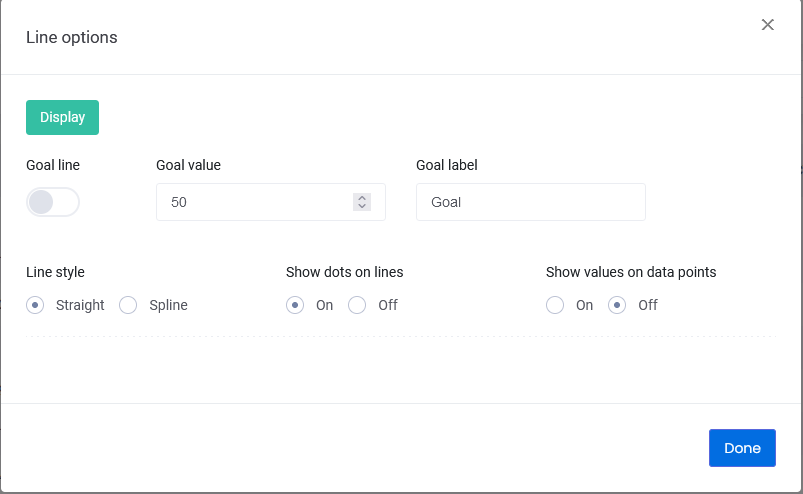
Press button to share or embed the portlet that has been made to other platforms and can be shared easily.

Press to see other menus to choose from such as:
- Revision History: To see every change made to the portlet
- Archive : To archive portlets that are not used but do not want to be deleted
3. Custom View
Allows users to create portlets more freely, because it is done using "program code"
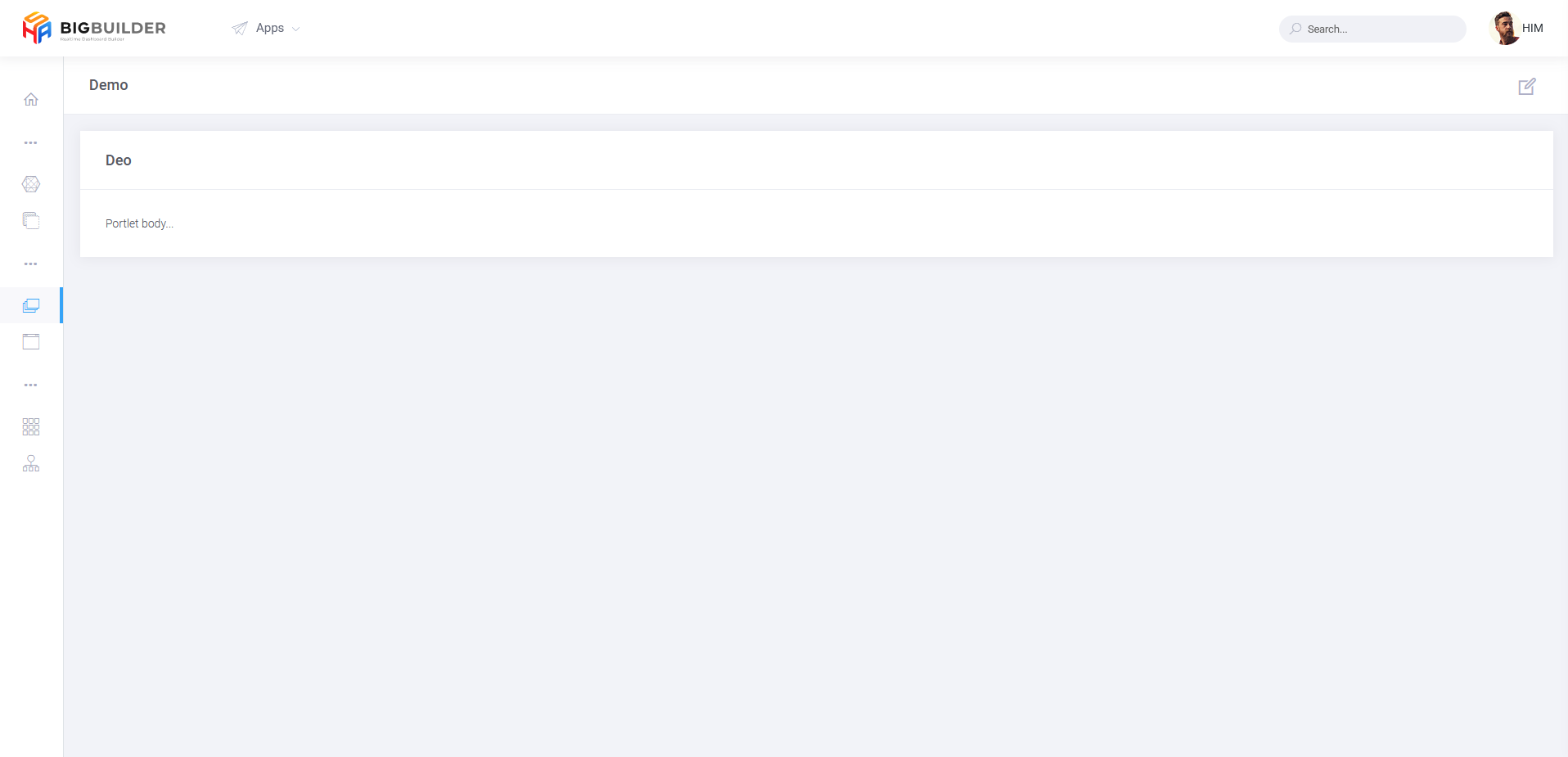
Press to do the programming of the Portlet that will be made as desired
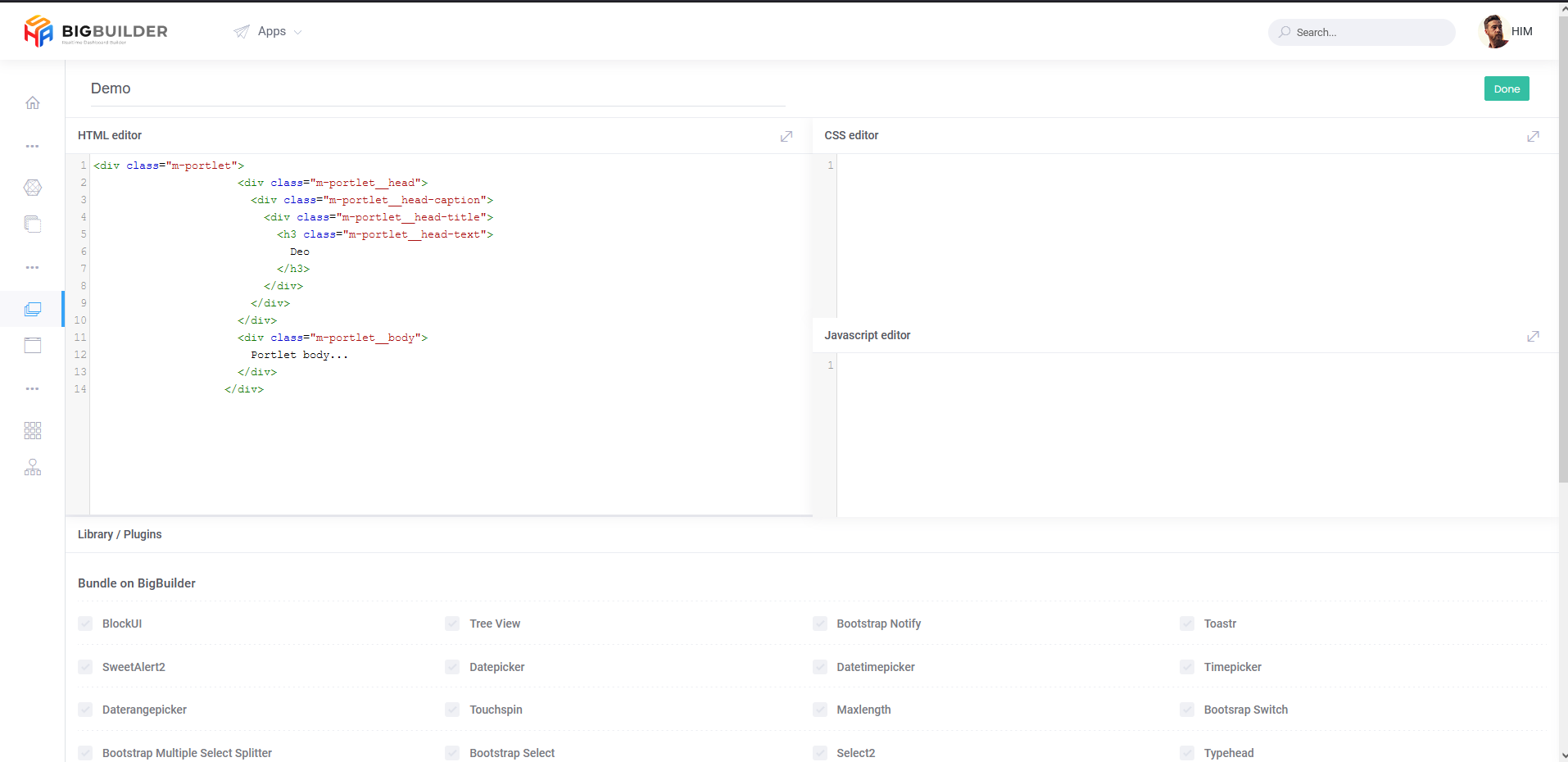
There are various kinds of editors that can be used to make portlets with the custom view, there are:
- HTML Editor: to do program code for files HTML
- CSS Editor: to do program code for files CSS
- Javascript Editor: to do program code for files javascript

Various kinds of third parties are also provided that can be used in making the portlet.
Edit Portlet
When the user has created a portlet but needs to make changes to the portlet again, the user can edit the portlet
